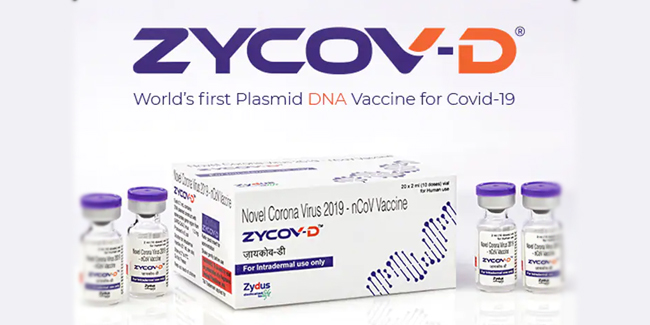India approved the world’s first COVID-19 DNA vaccine for emergency use
A drug regulator in India had granted an emergency use authorization (EUA) for the world’s first COVID-19 DNA vaccine in adults and children aged 12 years old and above.

The said approval gave a boost to India’s COVID-19 vaccination program, which aimed to vaccinate all eligible adults by December, and will provide the first dose for those under 18 years old, as India still struggled to contain the coronavirus spread in some states.
Zydus Cadila’s COVID-19 vaccine, ZyCoV-D, used a section of genetic material from the coronavirus that gave instructions as either RNA or DNA in order to make the specific protein that the immune system recognized and responded to.
Unlike most vaccines in the world, which needed two doses or even a single dose, ZyCoV-D was administered in three doses. Zydus Cadila, listed as Cadila Healthcare Ltd, aimed to make 100 million to 120 million ZyCoV-D vaccine doses annually and had already started stockpiling the vaccine.
Zydus Cadila’s COVID-19 DNA vaccine, developed in partnership with the Department of Biotechnology, WAs the second home-grown vaccine to get emergency use authorization in India after Bharat Biotech’s Covaxin COVID-19 vaccine.
READ ALSO: Cuba OKs Second Homegrown COVID-19 Vaccine For Emergency Use
Zydus Cadila said in July that its COVID-19 vaccine was effective against the new COVID-19 mutants, especially the Delta COVID-19 variant, and that the shot was administered using a needle-free applicator as opposed to traditional syringes.
Reuters reported that the regulatory nod made ZyCoV-D the 6th vaccine authorized for emergency use in India where only about 9.18% of the entire population had been fully vaccinated against COVID-19 so far, according to Johns Hopkins data.
Also, Zydus Cadila had submitted data evaluating a two-dose regimen for the vaccine in July and planned to seek regulatory approval for the same.
The company had applied for the authorization of ZyCoV-D last July 1, based on an efficacy rate of 66.6 percent in a late-stage trial of more than 28,000 volunteers nationwide.
For more news and updates, you may feel free to visit this site more often. You may also visit Newspapers.ph via our official Facebook page and YouTube channel.
